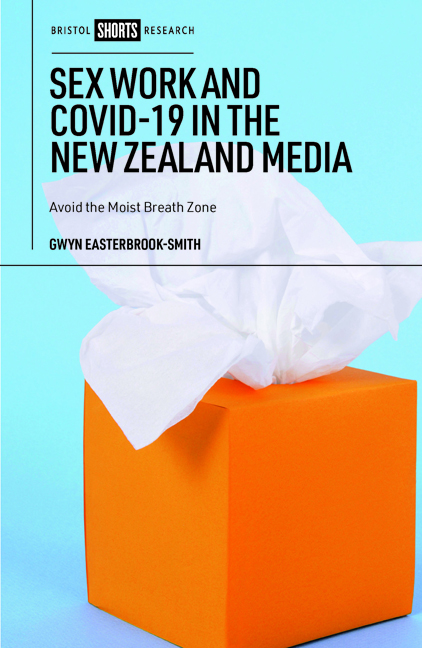Five - Conclusion
Published online by Cambridge University Press: 18 January 2024
Summary
Locally and internationally, experiences of the COVID-19 pandemic were mediated and influenced by socio-economic position, with those who already had the least access to resources, and who were the most shut out from support systems worst affected. This encompassed not just greater exposure and susceptibility to severe disease, but also worse economic outcomes as a result of lockdowns. A microcosm of this can be seen within the sex work community, where sex workers in more precarious positions were more exposed to health risks through being less able to stop in-person work, and to economic risks and hardships through being unable to access financial support.
In some earlier media discourses from New Zealand, a distinction is drawn between the more and less acceptable or respectable ways of doing sex work. The functional effect of this is that sex workers deemed less acceptable become the ‘even more marginalised ‘other other’, serving a rhetorical purpose of shoring up the highly conditional and contingent respectability of a smaller group of sex workers, closer to inclusion. The stigma of sex work is mutable and unevenly distributed. In the experiences of the pandemic, the material effects of this stigma are clearly shown, with the stigma of sex work interacting with the discrimination faced by, for example, migrants, to produce additional hardship. The reporting on the Blenheim pair, which outed them and implicitly signalled that they were likely migrant workers, for example, has the potential to re-entrench stigma against this group. The actions taken by some workers in response to severely limited options are then used to fuel discourses that continue producing that group as marginal. Noting that groups such as migrants experienced a heavier burden is not to dismiss the experiences and difficulties faced by all sex workers in New Zealand during the pandemic, but rather to highlight that the variations in sex workers’ experiences offer an especially sharp example of how stigma functions as a structural determinant of health and other life chances.
Stigma is intrinsically linked to a relative lack of social, economic and political power, and results in a stigmatised group being labelled, perceived negatively and ‘othered’, and consequently experiencing reduced access to core needs such as income, education, psychological wellbeing, housing and healthcare.
- Type
- Chapter
- Information
- Sex Work and COVID-19 in the New Zealand MediaAvoid the Moist Breath Zone, pp. 111 - 117Publisher: Bristol University PressPrint publication year: 2023



